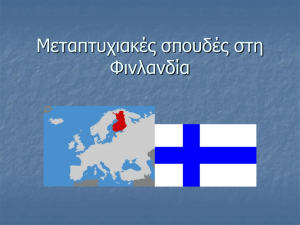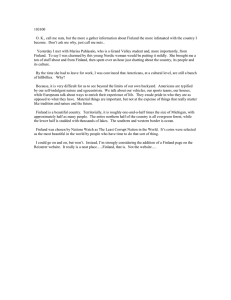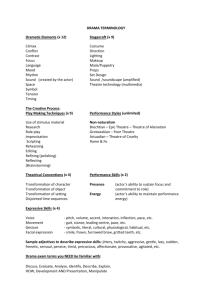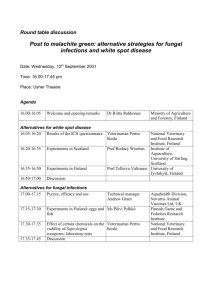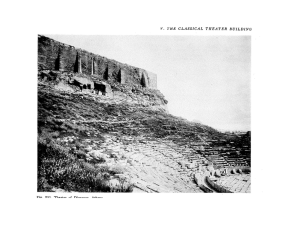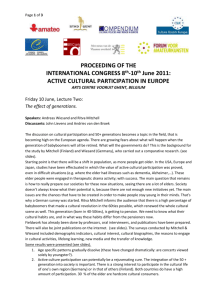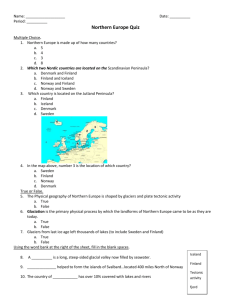Mikko-Olavi SEPPALA (University of Helsinki, Finland) Handling
advertisement
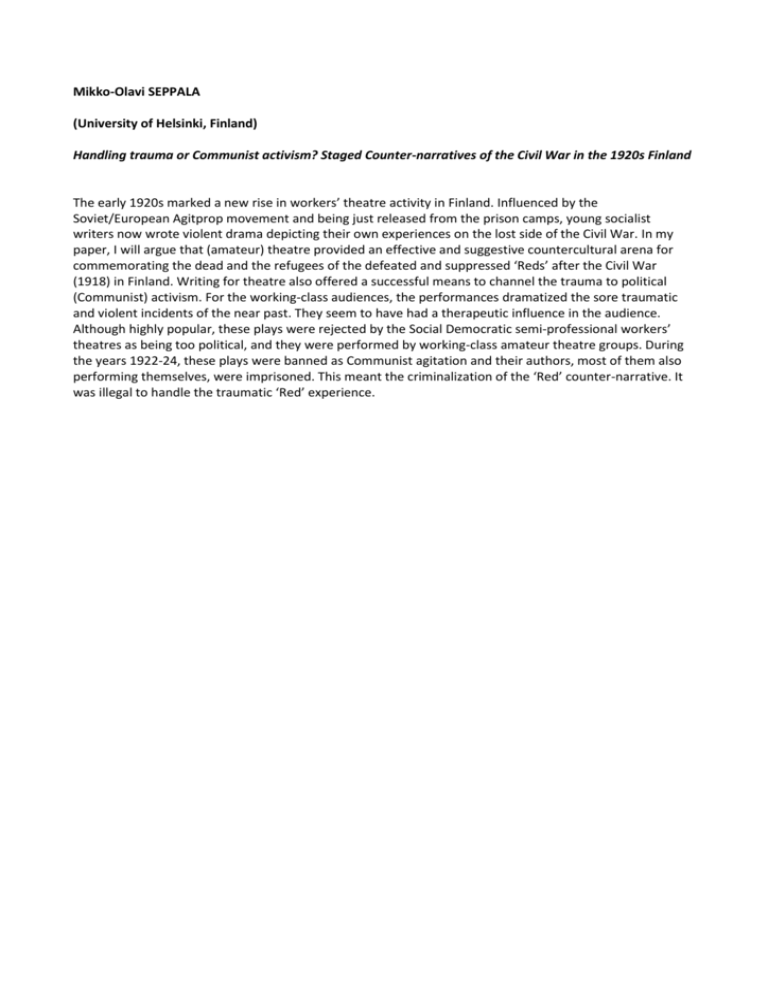
Mikko-Olavi SEPPALA (University of Helsinki, Finland) Handling trauma or Communist activism? Staged Counter-narratives of the Civil War in the 1920s Finland The early 1920s marked a new rise in workers’ theatre activity in Finland. Influenced by the Soviet/European Agitprop movement and being just released from the prison camps, young socialist writers now wrote violent drama depicting their own experiences on the lost side of the Civil War. In my paper, I will argue that (amateur) theatre provided an effective and suggestive countercultural arena for commemorating the dead and the refugees of the defeated and suppressed ‘Reds’ after the Civil War (1918) in Finland. Writing for theatre also offered a successful means to channel the trauma to political (Communist) activism. For the working-class audiences, the performances dramatized the sore traumatic and violent incidents of the near past. They seem to have had a therapeutic influence in the audience. Although highly popular, these plays were rejected by the Social Democratic semi-professional workers’ theatres as being too political, and they were performed by working-class amateur theatre groups. During the years 1922-24, these plays were banned as Communist agitation and their authors, most of them also performing themselves, were imprisoned. This meant the criminalization of the ‘Red’ counter-narrative. It was illegal to handle the traumatic ‘Red’ experience.


